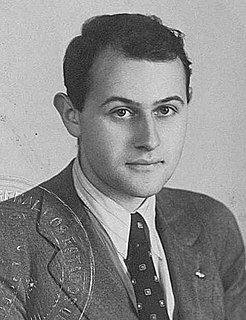A Quote by Marshall Curry
If I were writing an article for the newspaper, it would be thesis statement, information, information, supporting arguments. That would be the setup. When I'm making a documentary, the pacing of the film and the way that you sort of switch from character to character - all of those are more about storytelling than straight journalism.
Related Quotes
Some of my pictures are poem-like in the sense that they are very condensed, haiku-lik. There are others that, if they were poetry, would be more like Ezra Pound. There is a lot of information in most of my pictures, but not the kind of information you see in documentary photography. There is emotional information in my photographs.
Normally if you add information to information, you have more information. In case of my art, I destroy information, I would say, because the image is disturbed by the writings. In a way, they become pure imagery. For me it's really fun because it's an idealistic approach to images, to just play around with information and see what's happening.
For me, with any character, there are different ways that you approach understanding him, and in this film in particular, because I had the novel to refer to. It's always really helpful to have all of that information and all of those hundreds more words which give you an idea into the background and your character and all.
You have this certain about of responsibility to play a fictitious character and you have a script that's guiding you and the other information of the custom department's choices, and the set department, "Where are you," and all those other pieces of information but you have to cull from your imagination the answer to all the unasked questions. And with a real person, there's someone to get that information from, perhaps.
Directing plays lacked the immediacy and connection to real world events that journalism offered; journalism lacked the drama, theatricality and subjective storytelling of theater. It wasn't until I had the idea of making a documentary film about the 1992 presidential campaign that these two passions came together in 'The War Room.'
When I'm writing, I try to have the mask of my character on as I'm walking through the world. When I'm not at my desk, the rest of the time, I try to stay in that character and see the world the way that character would It's almost like method acting in a way — keeping the character close the way the actor keeps a script close and always tries to be in character.
Well, there's a question as to what sort of information is important in the world, what sort of information can achieve reform. And there's a lot of information. So information that organizations are spending economic effort into concealing, that's a really good signal that when the information gets out, there's a hope of it doing some good...
Well, there's a question as to what sort of information is important in the world, what sort of information can achieve reform. And there's a lot of information. So information that organizations are spending economic effort into concealing, that's a really good signal that when the information gets out, there's a hope of it doing some good.
If neuroscientific research shows that those mechanisms only contain comparative information about colour differences, and have 'thrown away' more fine-grained information about the absolute colours of single surfaces, then that would support my position, in a way that just introspecting our colour experiences can't.
Many more children observe attitudes, values and ways different from or in conflict with those of their families, social networks,and institutions. Yet today's young people are no more mature or capable of handling the increased conflicting and often stimulating information they receive than were young people of the past, who received the information and had more adult control of and advice about the information they did receive.
One of the interesting things about the history of poetry in the 16th, 17th, and 18th centuries is that people who read liked getting their information in rhyme just as much as in prose. The genre that we would think of as nonfiction often was written in verse in forms like the Georgic when people thought that one of the tasks of poetry was conveying arguments and information in a pleasant way.





































